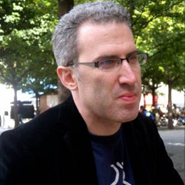The Irish International Joyce - Sam Slote
In the ‘Wandering Rocks’ episode of Ulysses, while walking through Dublin, the character Hugh C. Love imagines that he is traveling ‘towards the Tholsel beyond the ford of hurdles’. Both the Tholsel and the ford of hurdles were ancient landmarks in the city centre that had long since vanished by June 1904. Love, who is writing a book about the Fitzgeralds, is described as being ‘well up in history’ and so he nostalgically translates a bygone Dublin over the present city. With this small scene it is as if Joyce is anticipating what happens on a Joycean tour of Dublin today where so many of the places he describes have themselves vanished. Walking through Dublin today is walking through the city that has grown on top of Joyce’s Dublin, leaving little peeks of what once was there, like Sweny’s chemist, the National Library and Davy Byrne’s. Of course all living cities evolve and it would be foolish to expect that contemporary Dublin would preserve Joyce’s august Hibernian metropolis.
In any case, just as Joyce’s works are intimately infused with Dublin and its topographic minutiæ, so too contemporary Dublin remains infused with Joyce. This was in clear evidence at the start of the year with all the readings and performances staged to commemorate the end of (at least some of the) copyright restrictions over Joyce’s works. Joyce has finally entered the public domain of the city he devoted himself to. But Joyce has not just entered the Dublin public domain since the expiration of copyright is not a uniquely Irish matter. Joyce has entered the European public domain (or, at least, the EU public domain). One consequence of this is that there can be fresh translations of Joyce’s works; a new excellent Italian translation of Ulysses by Enrico Terrinoni is already available. Just as Homer’s reputation is preserved through translations for those of us unfortunately ignorant of Ionic Greek, much of Joyce’s reputation has accrued in places where English (and even Hiberno-English) is not spoken.
Joyce’s cosmopolitan renown is, of course, entirely appropriate. The flip-side to Joyce’s obsession with Dublin is his international pedigree. Joyce was not just an Irish writer, but an exile, an ex-Irish writer. The best English may well be spoken in Lower Drumcondra, as Stephen quipped in A Portrait, but Joyce spent most of his life elsewhere. The language the Joyce family spoke amongst themselves was often the Triestine dialect of Italian. Finnegans Wake none too subtly suggests that its author was somewhat familiar with a few languages. And beyond the references to Dublin, Joyce’s works are filled with references to the other cities he lived in: Trieste, Zürich and Paris.
By recording the specificity of just one city, Dublin, Joyce has become universal. As he writes in Finnegans Wake, his Dublin is an ‘imaginable itinerary through the particular universal’. While Bloomsday is a significant event in the Dublin calendar, it is celebrated worldwide. Instead of breakfast at Sandycove or Eccles Street, people elsewhere on June 16th make do with assorted piazze, calles and ulice. One of the cities that hosts an annual Bloomsday celebration is Szombathely in Hungary, which is the town Joyce chose as the ancestral home for Bloom’s family. The reason for this seems to be that when Joyce was living in Trieste, one of his colleagues at the Berlitz School was named Marino Szombathely, a Jewish immigrant of Hungarian extraction, who was translating The Odyssey into Italian. And so, because of this translator, this Hungarian town that Joyce never visited celebrates his most famous novel every year.
Joyce’s worldwide renown has been made possible through translators and translations. Recent translations of Finnegans Wake into Dutch and Ulysses into Bulgarian proved to be unexpected best-sellers. In the immediate aftermath of the Velvet Revolution in 1989, intellectuals in Prague brandished copies of the Czech translation of Ulysses as a sign of newly-won freedom. In 2008 I attended a Joyce conference at the University of Belgrade. The day before the conference began I saw a crowd of students gather around a promotional poster for the conference and one of them began reciting from memory the Serbian translation of the opening of Ulysses.
Even in languages where the current translations of Joyce’s works are good there is always room for fresh alternatives. I, for my part, find Richmond Lattimore’s translation of the Iliad to be a stunning achievement in terms of rendering Homeric style into English and yet I also welcome the more recent translation by Robert Fagles. Likewise, foreign readers of Joyce will now have new choices. As Roberrt-Jan Henkes – who co-translated Finnegans Wake into Dutch and is presently working on a new translation of Ulysses into that language (the third) – once remarked, one problem English readers have with Ulysses is that they have just the one text to read, but non-native speakers can have their choice of translations. The public domain is not just an Irish one: we can now all have our different Joyces.
Sam Slote is an Assistant Professor in the School of English, Trinity College Dublin. He is the academic coordinator for the 2012 International Joyce Symposium at TCD and UCD and the editor of an annotated edition of Ulysses that will be published later this year by Alma Books/Oneworld Classics.

